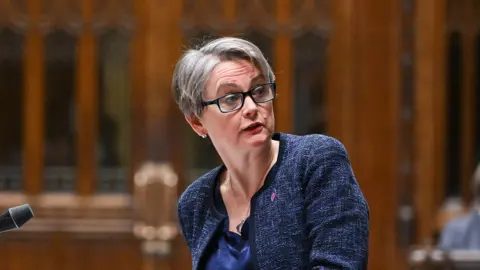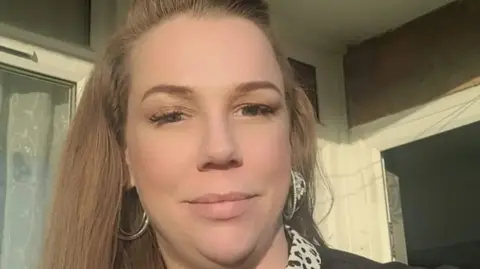Child exploitation and cuckooing to be criminal offences
 Reuter
ReuterChild criminal exploitation and "cuckooing" are set to become specific criminal offences as part of new legislation being introduced to Parliament next week.
The Crime and Policing Bill will also include measures that could see restriction orders put on people thought to be at risk of exploiting children for criminal means.
Cuckooing is when the home of a vulnerable person is taken over by criminals who use it as a base for illegal activities, such as drug dealing.
Home Secretary Yvette Cooper said exploitation like this was "sickening", adding that legislation would ensure victims were "properly protected and prevent these often hidden crimes from occurring in the first place".
"It is vital we do everything in our power to eradicate it from our streets," she said.
Under current CPS guidelines, prosecutors dealing with a suspected case of cuckooing may look to other offences such as assault, harassment and modern day slavery in order to bring charges - but these might not cover all examples.
The previous Conservative government had announced plans to criminalise cuckooing in its Criminal Justice Bill last year, but this legislation made no further progress when Parliament was dissolved for the snap general election.
Gennine Bird, a former heroin and cocaine user, told the BBC last year that cuckooing can involve a lot of intimidation by drug dealers, and that they will give drugs to the vulnerable person in order to stay in the property.
"A lot of people get beaten up, people get raped, women get sent out to do prostitution to pay off debts because, you know, they'll say give you the drugs, give you the drugs and then 'oh, you owe me money, you've got to pay that, and you don't have any money'. So they like, go out and sell your body," she said.
Dr Laura Bainbridge, an associate professor of criminal justice at Leeds University who specialises in cuckooing, welcomed the legislation saying the criminal and civil orders currently used to charge cuckooers are not consistent across England and Wales, and the harm caused to individuals is not reflected in sentences.
 Gennine Bird
Gennine BirdBut she told the Today programme that there were some grey areas and that determining victims and perpetrators in a cuckooing situation can be "very difficult to untangle" and "no two instances of cuckooing are identical.
"It may be the case that a vulnerable victim truly believes that say the drug dealer is their friend and refuses to eject them from their property - thus moving them towards the offender domain - or it may be the case that the perpetrator has been forced to cuckoo a property, by say county lines gang to pay off the drugs debt, and this moves them towards the victim domain," she said.
She added that she hopes the new law will ensure that victims are protected and not prosecuted, and that a multi-agency rather than an enforcement approach will be used.
The child criminal exploitation (CCE) offence in Labour's bill is designed to target people who groom children into criminal activity, including county lines drug dealing or organised robbery, the Home Office says.
Around 14,500 children were identified as being at risk of CCE in 2023-24, though the government says that is likely to be an underestimated figure.
The cuckooing offence will carry a maximum penalty of five years in prison, while the standalone child criminal exploitation offence will carry a maximum sentence of 10 years.
The legislation will also see the introduction of CCE prevention orders, which will mean that courts can put restrictions on people who they believe pose a risk of exploiting a child for criminal purposes.
Breaking these orders will also be a criminal offence, carrying a maximum sentence of five years in prison.
Dame Rachel de Souza, the UK's Children's Commissioner, has said the measures will provide "clarity that exploited children are victims".
"Many children targeted by adult criminals themselves face punishment instead of support," she said.
"Like too many child victims, they are often ignored and overlooked. Their voices and experiences must be listened to, if we are to create a child-centric justice system that puts safeguarding at its heart."
The bill will also include plans to explicitly outlaw spiking, with a new offence that will carry a prison term of up to 10 years.
